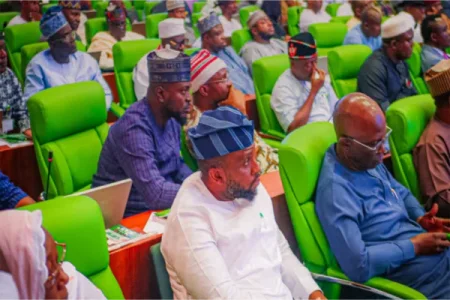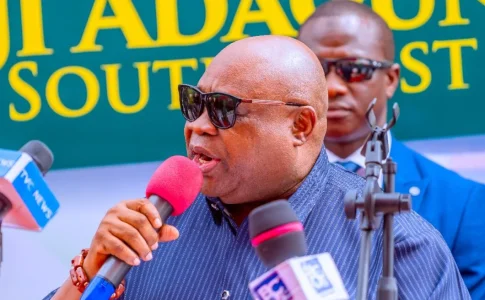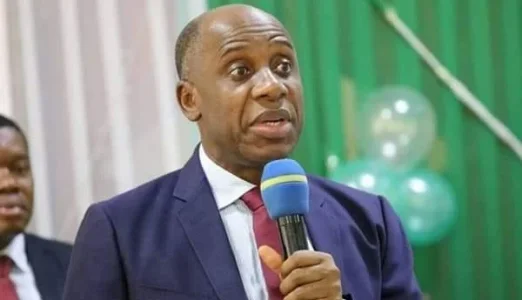
A looming clash in Nigeria’s House of Representatives over President Tinubu’s $2.2bn loan request may affect the 2024 budget. While ruling party lawmakers support the borrowing for capital projects, the opposition warns against rising debt. Key debates on transparency, project funding, and economic impact are set for this week.
A contentious debate is expected to unfold in the House of Representatives this week as lawmakers prepare to vote on President Bola Tinubu's request for a $2.2 billion (N1.77tn) external loan. This loan is intended to help bridge the N9.7 trillion deficit in Nigeria’s 2024 national budget.
The Senate has already approved the loan, but its fate in the House is less certain, with strong divisions emerging between members of the ruling All Progressives Congress (APC) and the opposition. As lawmakers gather for the debate, the decision is poised to test the government's ability to secure financial support for its economic agenda amidst growing concerns over Nigeria's rising debt levels.
Ruling Party Defends the Loan Request
Congressman Philip Agbese, Deputy Spokesperson of the House, expressed confidence that the loan would receive approval. Speaking to The Punch, Agbese emphasized that the loan would be used primarily for capital projects, asserting that the current administration has been “prudent” with the nation’s resources. He highlighted recent investments in infrastructure as evidence of the government's commitment to long-term development, insisting that such borrowing would stimulate economic growth.
“The House will approve the loan request without hesitation, as it aligns with the government’s priorities for capital development,” Agbese stated. “We have already begun scrutinizing the loan request, and as always, we will follow due process.”
Agbese also dismissed concerns over Nigeria’s growing debt profile, which currently stands at approximately N136 trillion. He argued that the investments in critical infrastructure, such as roads and health, justify the borrowing, adding that future generations would benefit from these long-term investments.
Opposition Raises Alarm Over Debt Burden
However, the opposition has voiced strong objections. Leaders from the minority caucus are urging caution, stressing that borrowing should not be the first option for financing the budget deficit. Kingsley Chinda, leader of the Minority Caucus, argued that there is a need for transparency and detailed planning before approving such a large loan.
“Borrowing should be the last resort, especially when it comes with interest. The government must explain why it has resorted to borrowing rather than exploring other sources of revenue,” Chinda remarked. “We need to know exactly what projects this loan will fund and how the repayment will be structured.”
Chinda’s concerns are shared by other lawmakers, including Bamidele Salam, Chairman of the Public Accounts Committee, who called for careful scrutiny of the loan terms. He emphasized that any loan approval should be conditional on the funds being directed toward urgent, critical infrastructure projects, rather than routine spending.
Economic Concerns and the Public's Growing Worry
The growing national debt has sparked widespread concern, particularly among Nigerians who are already struggling with the economic effects of subsidy removals and inflation. Afam Oghene, a member of the opposition Labour Party, voiced concerns over the potential long-term effects of continued borrowing.
“Our country is already facing an alarming debt load, and many Nigerians are worried about the lack of transparency surrounding these loans. The government must provide clear, verifiable plans for how these funds will be used,” Oghene stated.
He added that the Labour Party supports borrowing for productive investments but stressed that the public must be assured that loans are being used to stimulate the economy rather than finance day-to-day operations.
A Divisive Debate Ahead
As the debate looms, the political divide within the House of Representatives is likely to intensify. Proponents of the loan argue that it is essential for the nation’s development and economic stabilization, while critics warn that it could further strain Nigeria’s already precarious financial position.
With both sides gearing up for a showdown, the outcome of this week’s debate could have significant implications for Nigeria’s fiscal future. The House of Representatives is set to decide whether the government’s borrowing plans will continue without resistance, or whether lawmakers will demand more accountability and oversight before moving forward.




